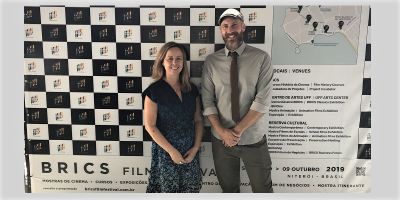European Cinema: Perspectives on post-democracy and the Crisis of the European Project
Reflection on the recent CWCDC Sadler Seminar event organised by Dr Angelos Koutsourakis
On Friday 19 May, the Centre for World Cinemas and Digital Cultures organised its last Sadler seminar workshop. The theme of the workshop was European cinema in an age of post-democracy. The workshop addressed the ways that cinema has prefigured the current political impasse following the Brexit vote in 2016, and the broader crisis of the European project intensified by the global financial crash and the refugee crisis.
The first speaker was Professor Martin O’Shaughnessy, whose paper was titled ‘No exit: French and Belgian film and worker suicide’. His paper sought to make sense of the recurrent representation of worker suicide in recent French and Belgian film, focusing on the works of a range of directors. He suggested that the films deploy their own combination of subjective violence as a way to force systemic violences into view, suicides thus becoming symbolically productive in what is essentially a melodramatic economy.
The second speaker was Dr Richard Rushton, whose paper ‘The Rules of the European Game: From Renoir to Chevalier’, drew on the work of Étienne Balibar, Wolfgang Streeck and Thomas Piketty to explore how European cinema responds to the pressures put on European democratic principles by the markets.
Dr Dorota Ostrowska’s paper, ‘A Spectacle of Crisis in the Festive Guise: Politics of European Film Festivals. The case of Berlinale’, discussed how film festivals in Europe have addressed questions of political conflict. By focusing on Berlinale, Ostrowska discussed the festival’s contemporary politics by looking into its past role as mitigator of conflict during the Cold War years.
Dr Thomas Austin’s paper, ‘Benefaction, processing, exclusion: documentary representations of refugees and migrants in Fortress Europe’, focused on recent documentaries about the refugee crisis. He discussed representations of migrants and asylum seekers in some recent documentaries made in Europe so as to address how refugees tend to be blamed for broader political uncertainties brought about by globalisation and neoliberalism.
Finally, Dr James Harvey in his paper ‘Observing Nationalism’ addressed questions of nationalism in contemporary European cinema.
The event was generously sponsored by the Leeds Humanities Research Institute and the AHRC.



